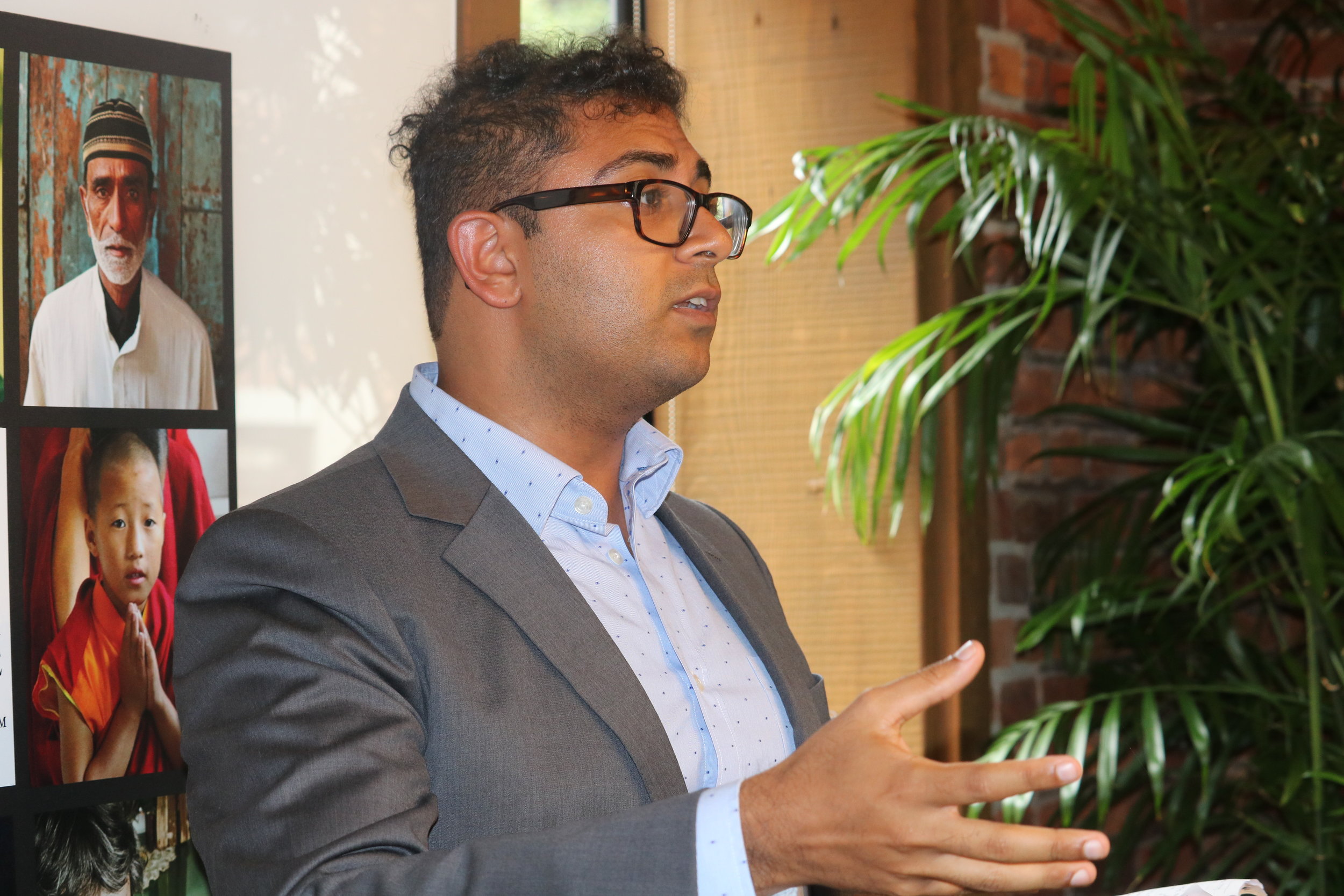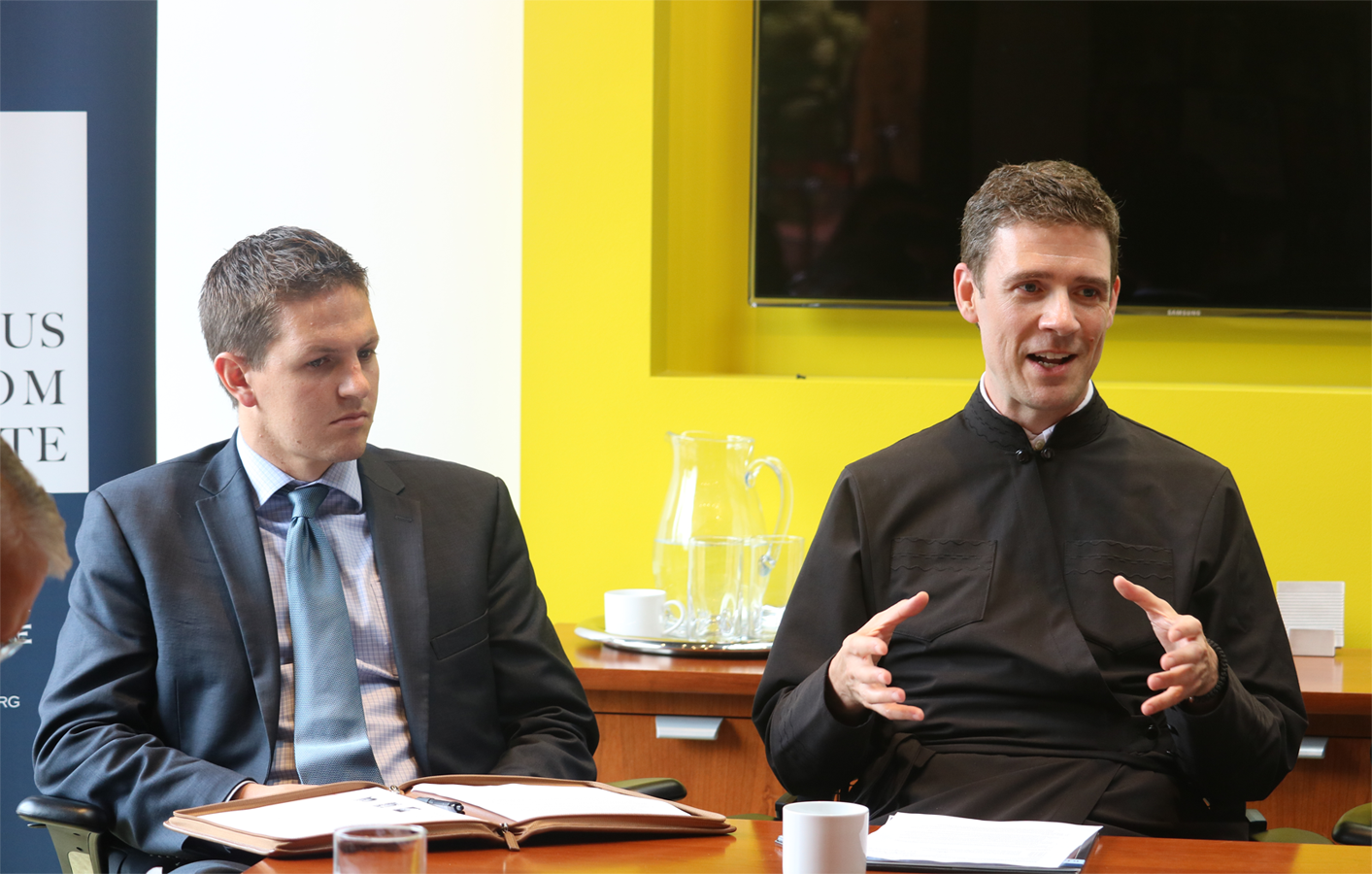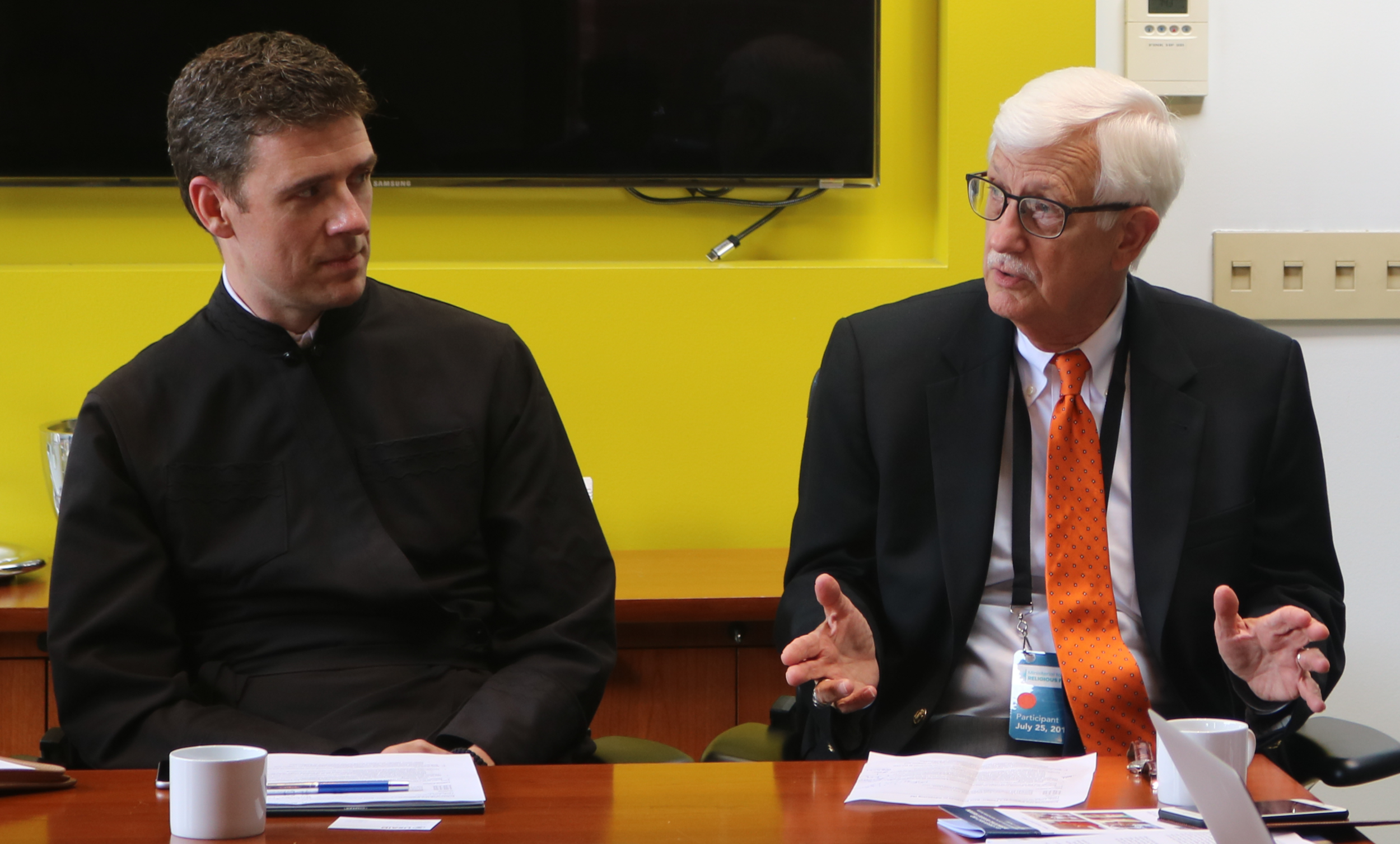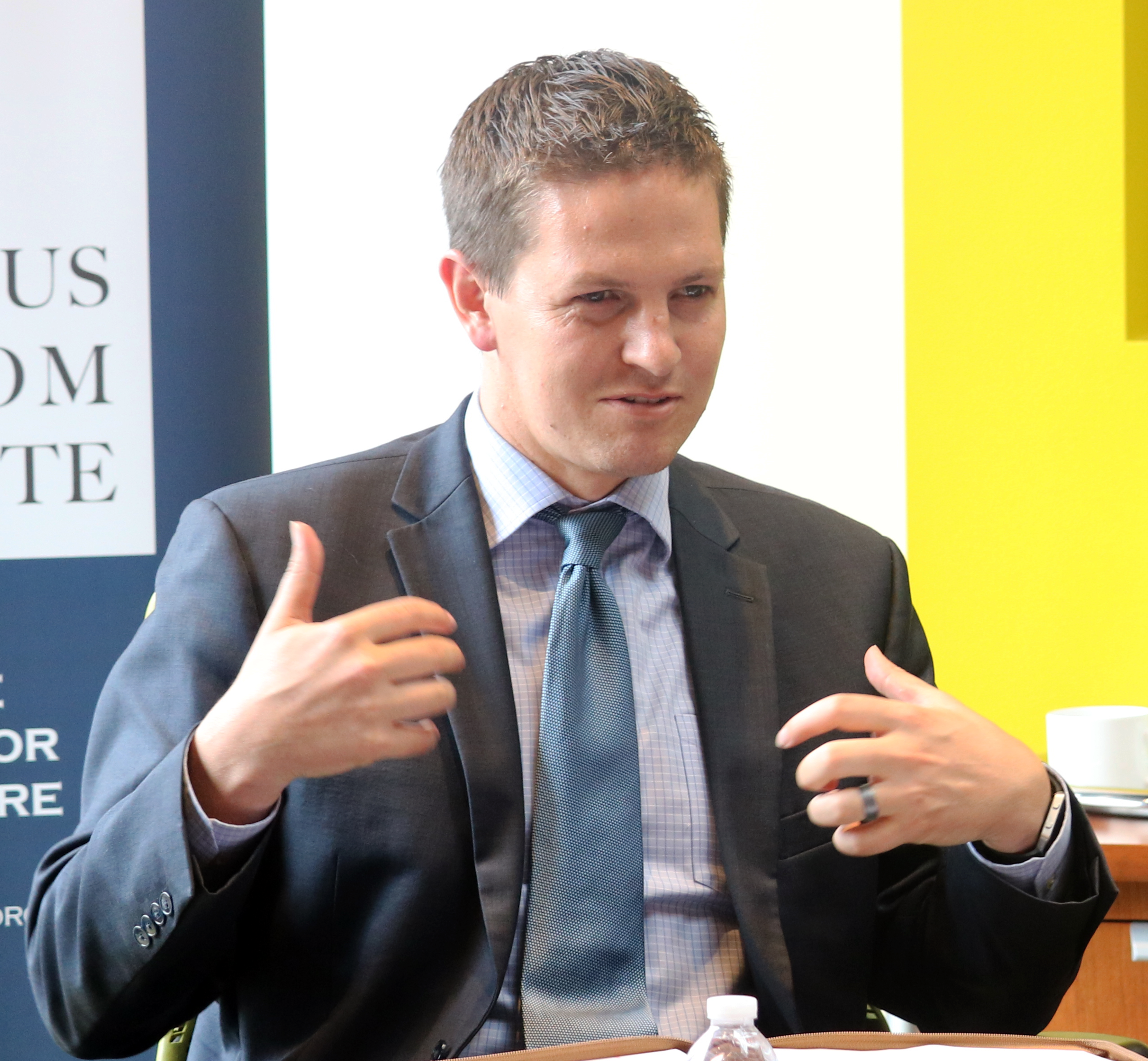On Wednesday July 25, 2018, The Religious Freedom Institute hosted “Enhancing the Diplomat’s Toolkit: Best Practices in Advancing International Religious Freedom.” The event was held in conjunction with the U.S. Department of State’s Ministerial to Advance Religious Freedom.
The panel discussion included Father Deacon Andrew Bennett, Senior Fellow for the International Religious Freedom Policy Action Team and former Canadian Ambassador for Religious Freedom; Thomas Farr, President of the Religious Freedom Institute and founding Director of the State Department’s Office of International Religious Freedom; and Jeremy Barker, Senior Program Officer at the Religious Freedom Institute.
After opening remarks by Andrew Bennett, Thomas Farr recounted experiences from his diplomatic career that highlighted the need for diplomats trained in religion and religious freedom. For example, while Farr was working in the State Department’s Bureau of Intelligence and Research, a memorandum to the Secretary of State on Catholic religious views was returned to its author with the notation that religious subjects were not an appropriate matter for the Secretary’s consideration. Such views, Farr argued, reflect both an aggressive and unrealistic secularism and a misplaced belief that religious analysis is a step toward the establishment of religion. How can our foreign policy engage nations like Iraq or Iran and dismiss religion?
Both evidence and common sense suggests that all human beings are religious by nature. Each of us naturally seek to know whether there is a greater-than-human source of our being and of ultimate meaning. This reality means that literacy about religion, and about religious freedom, is essential to diplomacy, even in secular Western societies. Farr believes that while there has been progress in American diplomatic religious literacy, there is still much work to be done.
Canada, it seems, is no better than the U.S. when it comes to training diplomats in religion and religious freedom. Andrew Bennett spoke of his time as the first Ambassador for Religious Freedom in Canada. Bennett described when he was asked within the Ministry of Foreign Affairs how his Catholic faith influenced his work. Bennett said his faith influences everything he does – his work and his interactions with people. In the weeks following the question, half a dozen outgoing ambassadors approached him expressing their wish that they too could say things like that.
For Bennett, if we start from the stance that faith should not be public, diplomats are going to have a hard time understanding why religious freedom is so essential. He does not fault diplomats for not knowing about faith, but rather for not doing anything about that lack of knowledge.
To conclude, Jeremy Barker discussed how the Religious Freedom Institute is working to empower diplomats to engage with religious actors. Barker highlighted RFI’s work on religious freedom landscape reports, future programmatic focuses and finally, RFI’s planned work on analysis, indicators, and metrics to inform work on religious freedom throughout the world.
Barker also spoke on how RFI is developing a curriculum and training for government actors, legislators and civil society. These programs will essentially promote an understanding of what religious freedom is, offer tools for engaging with religious actors, and show what ways one can advance religious freedom.
The event had a vigorous response and was standing room only.




THE RFI BLOG

Be More Faithful, Become More Resilient: An Invitation to Religious Institutions

How Soccer Reveals Different Meanings Of ‘Secular’ In France And The US

RFI’s Ismail Royer Meets with Delegation from India

Protecting the Unborn, Mothers, and Medical Ethics: The Stakes of Arkansas’ Amendment

Wisconsin Supreme Court Punishes Catholic Charities for Serving Everyone
CORNERSTONE FORUM

Public Bioethics & the Failure of Expressive Individualism

Religious Liberty in American Higher Education

Scotland’s Kate Forbes and the March of Secularism

70 Years of Religious Freedom in Sweden: Prospects and Challenges




